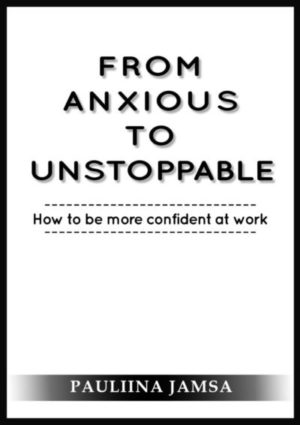Sorry, but your daughter is hopeless in math.
My dad stared at the almost smug looking primary school teacher in disbelief and took the exam papers. Indeed. I had not only done badly in the last few exams, but I had failed the last one.
I was 7-years-old.
Heavy-hearted my dad came back home and asked me to sit down with him at the kitchen table. I knew I was in trouble and felt like a failure.
Let’s go through some equations – What’s 5+6?
11, came straight away the answer.
The list went on until he noticed something particular. I gave the right answer immediately, however I drew the numbers very slowly in the answer sheet. He asked what made me spend so much time on it.
I need to make them beautiful. Teacher gives a bad note if our numbers are not pretty.
He smiled and explained that things had changed. What now mattered was the speed.
Concentrate on filling up the paper as quickly as you can next time, ok?
So I did. I got an A.
—-
20 years later I was sitting in a performance review. The manager had changed in the middle of the year and I was a bit nervous – I felt that things weren’t going as well as previously.
Pauliina. You are great, but your campaign reporting is simply not good enough. You need to improve your efficiency.
It hurt.
Campaign reporting was “my thing”. Something I was proud of.
I felt like a failure.
4 painful lessons I learned in performance reviews:
1. Be clear beforehand what your performance is measured on
Whenever there’s a change of management, team, role or strategy, also the way your performance is measured changes.
Just like it hadn’t occurred to me when I was 7 that the exams were now rating different things – instead of pretty numbers, I had to answer as many equations as possible – I hadn’t realised that the management was now expecting efficiency, not quality.
Why? Because I hadn’t asked.
Tip for you: whenever there’s a change, seek clarity and ask what your performance is measured on and what high performance look like. Find out if your yearly performance goals are still valid or need to be adjusted.
2. Check in advance what the expectations are with a new manager
My mistake was to assume that both managers’ standards were the same – yet what is good enough for one, is unacceptable for another.
Previous manager expected all the reports to be clearly formatted, detailed, and full of visual graphs. He put more value on quality. The new manager only wanted something quick and dirty. She put more value on speed.
Me delivering what the previous manager wanted frustrated the new one, resulting in a bad performance review.
Tip for you: Have an open conversation with the new management on how they want to work and get things delivered. If you are a manager, explain to your team members what the work is for, when it needs to be delivered, and how do you expect the results to be.
There’s a big difference between a report fit enough to present for top management and just few numbers you need quickly to check that everything is on track.
3. Got a bad performance review? Clarify what exactly made it so bad.
It’s tough to ask questions when you feel like you’ve been hit with a baseball bat, but it’s worth it: that’s how you know how to improve.
If I hadn’t realised that the speed was the issue, not the quality I previously was measured on, I would have spent even more time drawing those numbers as beautiful as possible to improve my score.
If I hadn’t asked my new manager what made me inefficient, I would have worked overtime trying to deliver those same detailed, visual reports to improve my performance – instead of sending her something quick and dirty in a record time like she wanted.
Tip for you: Always clarify what’s the real reason behind the bad comments – not in a defensive way, though! Keep it cool.
4. Bad review doesn’t make you a failure
When I had gone from an A player to failing in math, I was starting to get convinced that I wasn’t good in it. That I was stupid. A failure.
Same thing happened with my bad performance review 20 years later.
Mistake I did was to base my personal value on external reviews. A review is just another person’s opinion and a chance for you to learn and improve.
Failing in something doesn’t mean you yourself are a failure 🙂
Tip for you: If you are in a leadership role, don’t rule people out as useless or incompetent if they don’t deliver what you wanted: they simply may not know that the way their performance is measured has changed. Tell them – I bet they’re awesome 🙂
If you have kids …
Please don’t take school grades for granted. Sit down with them, ask questions to see what’s the real reason behind the bad notes is and listen.
I’m forever grateful my dad did.
Best of luck,
Pauliina
Ps. If you found this helpful in anyway, please do like this or share your thoughts in comments 🙂 Would really appreciate it!
[This is part of my challenge to share one personal failure per week to help you see you’re not alone: we all fail. I hope this will help you to get unstuck and succeed in life 🙂 ]
Related: 7 Painful lessons I learned in agile project management

